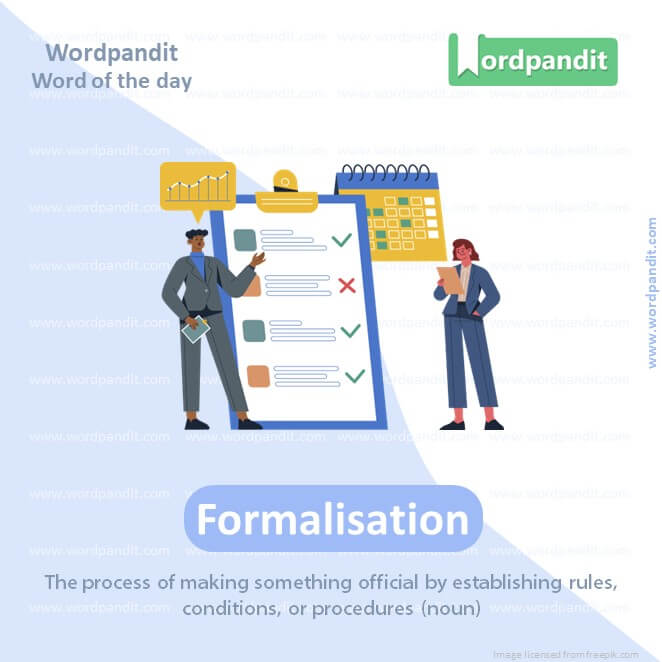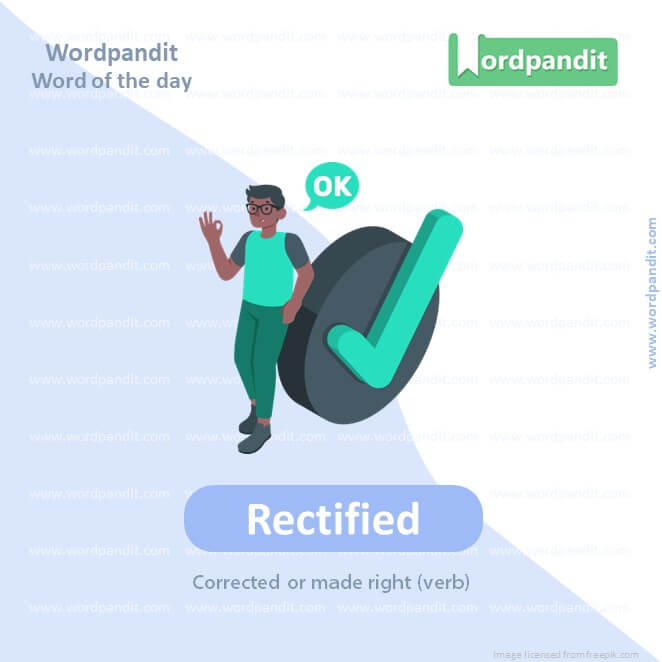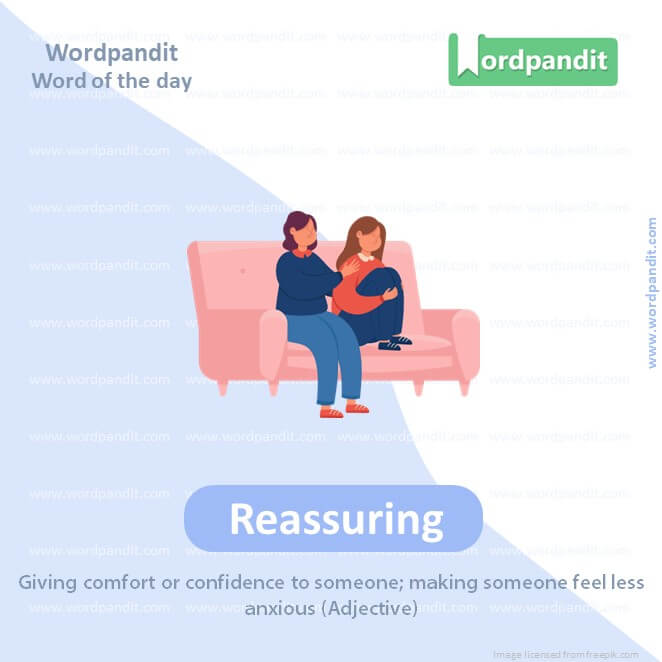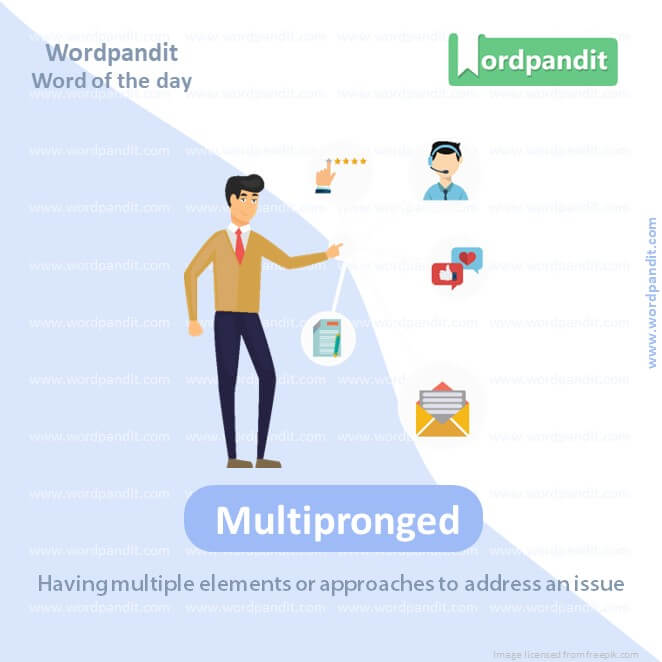Daily Vocabulary Words: List of Daily Used Words in Leading Indian Newspapers
Hi there. Welcome to this special section @ Wordpandit. Our endeavour here is straightforward: highlighting daily vocabulary words that you would come across in leading newspapers in the country. We have included the following newspapers in our selection:
• The Times of India
• The Economic Times
• Hindustan Times
• Mint
• Indian Express
We are putting in extensive work to develop your vocabulary. All you have to do is be regular with this section and check out this post daily. This is your repository of commonly used words; essentially, we are posting a list of daily used words. Hence, this has significant practical application as it teaches you words that are commonly used in leading publications mentioned above.
Visit the website daily to learn words from leading Indian newspapers.

WORD-1: Formalisation
CONTEXT: Another sharp trend is the growing evidence of formalisation of the economy and the growth of the middle class.
SOURCE: Hindustan Times
EXPLANATORY PARAGRAPH: Imagine when you and your friends decide to make rules for a game you invented and then write them down so everyone knows and agrees. That’s called “formalisation.” It’s when you make something official by setting it out clearly in rules or steps.
MEANING: The process of making something official by establishing rules, conditions, or procedures (noun).
PRONUNCIATION: for-muh-lie-ZAY-shun
SYNONYMS: standardization, regulation, systematization, codification, structuring
USAGE EXAMPLES:
1. The formalisation of the agreement took place at the meeting.
2. He was responsible for the formalisation of company policies.
3. The formalisation of data helped in analyzing it better.
4. Through formalisation, the informal group became a recognized club.
WORD-2: Stagnant
CONTEXT: Critical schemes like Saksham Anganwadi and Poshan 2.0 and PM POSHAN (earlier ICDS, mid-day meals), and old age pensions have faced the guillotine or remained stagnant.
SOURCE: Hindustan Times
EXPLANATORY PARAGRAPH: Think about a puddle of water that doesn’t move and starts to smell and get dirty. That’s “stagnant.” It means something that isn’t moving or growing, just staying the same and not getting better.
MEANING: Not moving or flowing, and often smelling unpleasant or lacking development and progress (adjective).
PRONUNCIATION: STAG-nuhnt
SYNONYMS: still, motionless, inactive, stale, sluggish
USAGE EXAMPLES:
1. The stagnant water became a breeding ground for mosquitoes.
2. His career has been stagnant for a few years.
3. The debate remained stagnant with no new ideas.
4. They were frustrated by the stagnant economy.

WORD-3: Unbridled
CONTEXT: We saw episodes of this in the 2010-12 period when inflation reached double digits on the back of unbridled borrowing that reached 41% of the total government expense in the financial year 2009-10.
SOURCE: Hindustan Times
EXPLANATORY PARAGRAPH: Imagine riding a horse without any reins to guide it, and it runs wherever it wants really fast. That’s “unbridled.” It means something that is not controlled or limited, like running free without being stopped.
MEANING: Free from any form of control, and thus acting without restraint
(adjective).
PRONUNCIATION: uhn-BRY-duld
SYNONYMS: unrestrained, unchecked, uncontrolled, wild, rampant
USAGE EXAMPLES:
1. She laughed with unbridled joy.
2. The discussion turned into unbridled chaos.
3. His enthusiasm was unbridled at the news.
4. The city faced unbridled growth over the last decade.

WORD-4: Rectified
CONTEXT: this was rectified subsequently in a visible effort to improve macro-fiscal management.
SOURCE: Hindustan Times
EXPLANATORY PARAGRAPH: Imagine you’re building a tower with blocks and one block is out of place, making the tower lean. You move that block to the right spot so the tower is straight again. That’s “rectified.” It’s when you fix something that was wrong.
MEANING: Corrected or made right (verb).
PRONUNCIATION: REK-tuh-fyd
SYNONYMS: corrected, amended, adjusted, fixed, remedied
USAGE EXAMPLES:
1. The mistake in the report was quickly rectified.
2. He rectified the situation by apologizing.
3. The engineer rectified the design flaw.
4. The system was rectified to improve performance.
WORD-5: Entitlements
CONTEXT: The bluster of empowerment versus entitlements of the past notwithstanding, Garib Kalyan today remains aligned to political opportunism rather than a robust substantive welfare commitment.
SOURCE: Hindustan Times
EXPLANATORY PARAGRAPH: Imagine you have a ticket that lets you get one free ice cream every week. That ticket is like an “entitlement.” It means you have the right to get something because you have that special ticket or permission.
MEANING: Rights to benefits or possessions, typically provided by law or contract (noun).
PRONUNCIATION: en-TY-tuhl-ments
SYNONYMS: rights, privileges, claims, benefits, allowances
USAGE EXAMPLES:
1. Social security entitlements are important for many people.
2. They discussed the entitlements that employees have.
3. The entitlements of citizenship include voting rights.
4. She checked her entitlements under the new policy.
WORD-6: Sticking
CONTEXT: This is the significance of sticking to the fiscal glide path.
SOURCE: Hindustan Times
EXPLANATORY PARAGRAPH: Think about when you put a sticker on a piece of paper, and it stays right where you put it, not moving at all. That’s “sticking.” It means to attach to something and not come off easily.
MEANING: Adhering or clinging to a surface or substance (verb).
PRONUNCIATION: STIK-ing
SYNONYMS: adhering, clinging, attaching, bonding, affixing
USAGE EXAMPLES:
1. The label was sticking to the jar.
2. Mud was sticking to their boots.
3. He had difficulty sticking to the diet.
4. The problem of sticking doors happens in humid weather.
WORD-7: Expense
CONTEXT: . We saw episodes of this in the 2010-12 period when inflation reached double digits on the back of unbridled borrowing that reached 41% of the total government expense in the financial year 2009-10.
SOURCE: Hindustan Times
EXPLANATORY PARAGRAPH: Imagine when you want to buy a toy, and you give money to the store to get it. That money you spent is called an “expense.” It’s the amount of money that you use to buy things or services.
MEANING: The cost required for something; the money spent on something (noun).
PRONUNCIATION: ik-SPENS
SYNONYMS: cost, charge, expenditure, outlay, payment
USAGE EXAMPLES:
1. Traveling by car has its own set of expenses.
2. They kept track of their daily expenses during the trip.
3. The project was completed within the estimated expense.
4. Reducing unnecessary expenses can help save money.

WORD-8: Reassuring
CONTEXT: On the inflation front, the reduction of the fiscal deficit target to 5.1% of the Gross Domestic Product (GDP) is a reassuring step in the right direction.
SOURCE: Hindustan Times
EXPLANATORY PARAGRAPH: Imagine you’re scared during a thunderstorm, and your big sister hugs you and says everything will be okay. That’s “reassuring.” It’s when someone says or does something to make you feel better and less worried.
MEANING: Giving comfort or confidence to someone; making someone feel less
anxious (Adjective).
PRONUNCIATION: ree-uh-SHOOR-ing
SYNONYMS: comforting, encouraging, soothing, supportive, calming
USAGE EXAMPLES:
1. Her mother’s voice was reassuring in the dark.
2. He gave a reassuring smile during her speech.
3. The doctor’s reassuring words helped calm the patient.
4. It was reassuring to know the police were nearby.
WORD-9: Opportunism
CONTEXT: The bluster of empowerment versus entitlements of the past notwithstanding, Garib Kalyan today remains aligned to political opportunism rather than a robust substantive welfare commitment.
SOURCE: Hindustan Times
EXPLANATORY PARAGRAPH: Imagine if someone only shares their toys with you when they want something from you in return. That’s called “opportunism.” It’s when someone does things to benefit themselves, especially taking advantage of situations without thinking about what’s fair or right for others.
MEANING: The practice of taking advantage of opportunities or circumstances, often with little regard for principles or consequences.
PRONUNCIATION: op-er-TOO-niz-um
SYNONYMS: self-interest, expediency, pragmatism, using the situation, time-serving
USAGE EXAMPLES:
1. His decision was seen as opportunism rather than a well-thought-out strategy.
2. Opportunism often leads to unfair outcomes.
3. The politician was accused of opportunism for changing positions based on popularity.
4. Business opportunism can sometimes lead to ethical questions.

WORD-10: Multipronged
CONTEXT: The multipronged economic management over the last 10 years has complemented people-centric inclusive development.
SOURCE: Hindustan Times
EXPLANATORY PARAGRAPH: Imagine using a fork with many points (prongs) to pick up different pieces of food at once. That’s “multipronged.” It means something that has many different parts or steps, all working together to get the job done.
MEANING: Having multiple elements or approaches to address an issue.
PRONUNCIATION: mul-tee-PRONGD
SYNONYMS: multifaceted, diversified, multi-aspect, varied, comprehensive
USAGE EXAMPLES:
1. The company launched a multipronged strategy to increase sales.
2. A multipronged approach is necessary to solve complex problems.
3. The plan was multipronged, involving marketing, sales, and customer service.
4. Addressing climate change requires a multipronged effort.
Vocabulary Meaning
In the ocean of language learning, ‘vocabulary meaning’ is akin to the colorful coral reefs that add depth and vibrancy to communication. Yet, infusing our interactions with this vibrancy is often a challenge for many language learners. The crux lies in effectively deciphering and employing the ‘vocabulary meaning’.
Learning ‘vocabulary meaning’ isn’t about merely gluing words to their definitions. It’s about forming a deep understanding and connection with these words that transcends rote learning. To gain a comprehensive grasp of ‘vocabulary meaning’, one needs to navigate beyond textbook definitions and commit to exploiting diversified resources such as novels, films, music, articles, and digital content. This allows one to encounter vocabulary in a variety of contexts and actual usage, giving deeper insight into their meaning.
However, understanding ‘vocabulary meaning’ involves another essential aspect—memory retention. Techniques such as spaced repetition and the Leitner System offer effective methodologies to maintain and consolidate the ‘vocabulary meaning’. Additionally, leveraging mnemonic strategies can help etch words into your memory by linking them with unique stories or imagery that are personal and easily recallable.
Another way of mastering ‘vocabulary meaning’ is by immersing yourself in the language. Engage in regular conversations with native speakers if possible or utilize language exchange platforms to practice your skills. This not only bolsters your understanding of how the vocabulary is used but also helps articulate the ‘vocabulary meaning’ in the societal and cultural contexts.
In conclusion, gaining a robust grasp of ‘vocabulary meaning’ is a journey rather than an end goal. It requires dedication, perseverance and most importantly, a multi-faceted approach that includes diversified resources, effective memory strategies, and real-life application. With these strategies in place, the depths of ‘vocabulary meaning’ are no longer daunting but become an enchanting exploration of language.







